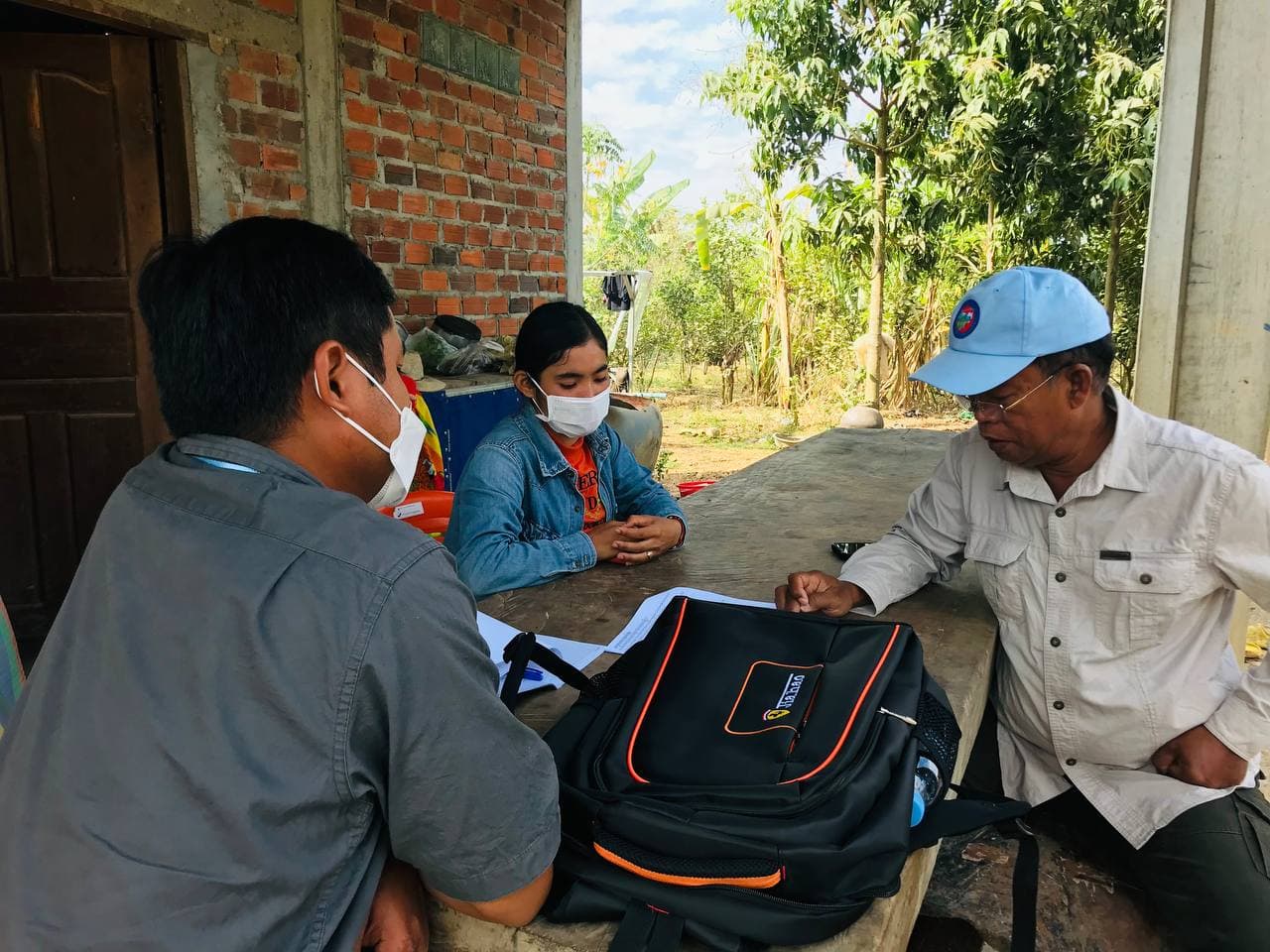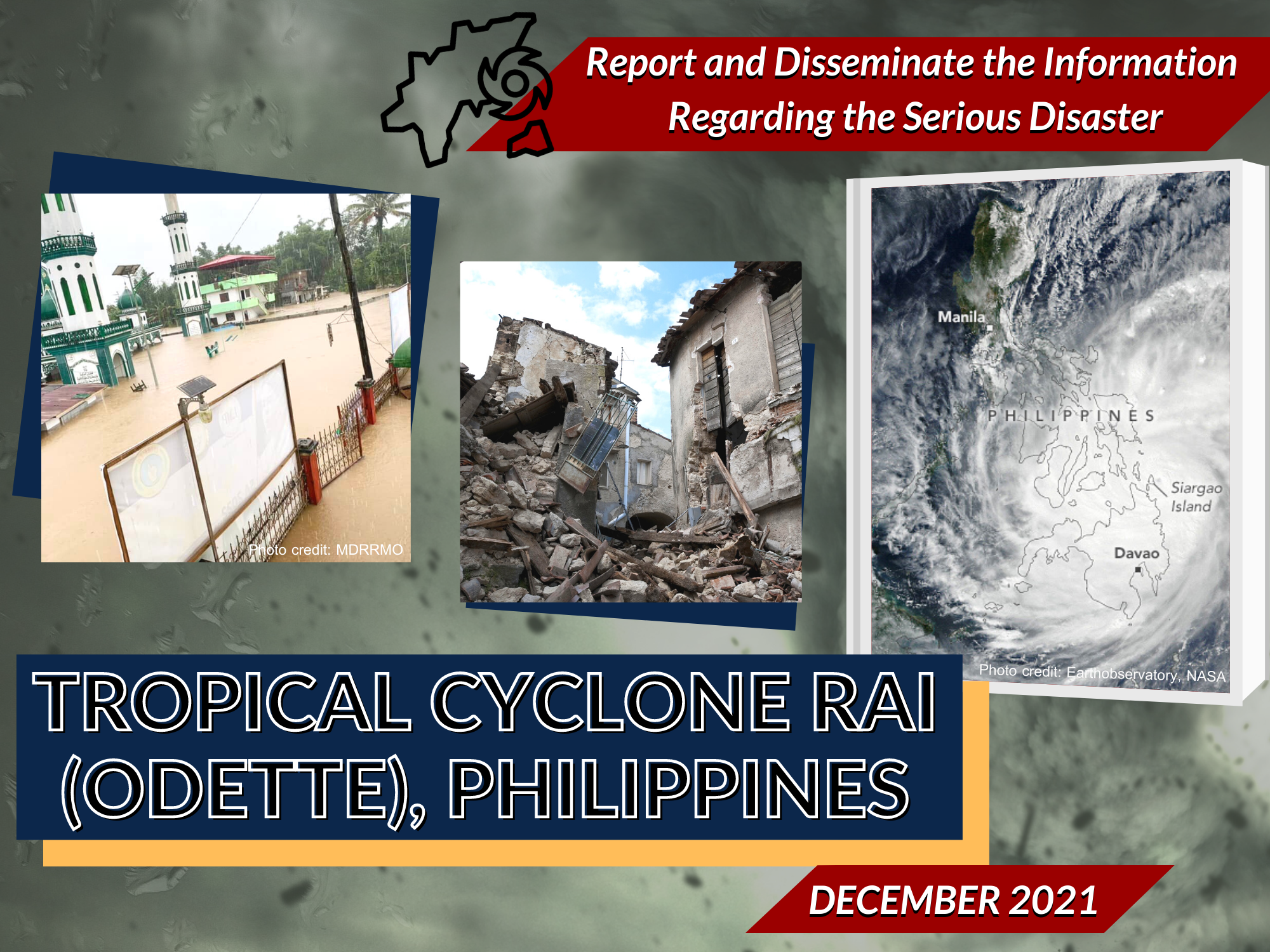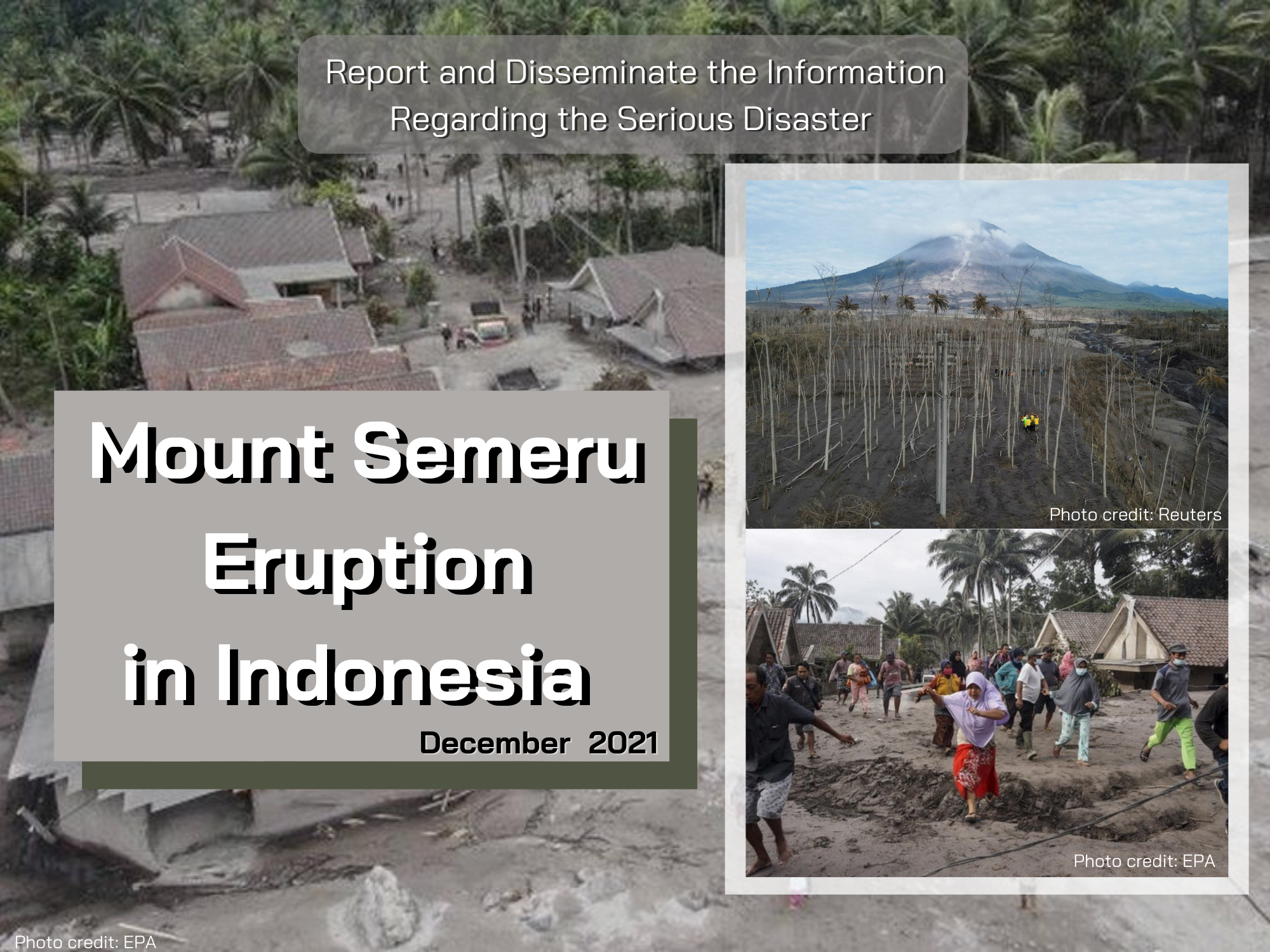
On 7-8 April 2022, the Department of Planning and Statistics (DPS) of Cambodia's Ministry of Agricultural and Fishery and Forestry (MAFF), in collaboration with the AFSIS Secretariat, held a virtual conference on Data Analysis Training as part of the Supporting Agricultural Survey on Promoting Sustainable Agriculture in ASEAN Region project (SAS-PSA). Mr. NIIMI Tomohiro, the Japanese expert, has trained Mr. Stong Kia, the National Consultant of the SAS-PSA project in Cambodia, so that he could pass on his knowledge to other DPS staff in the soon future.
On 30 March 2022, the Asian Development Bank (ADB) and the FAO-Regional Office for Asia-Pacific have recently launched two free “Massive Open Online Courses (MOOCs) on Computer-Assisted Personal Interviewing (CAPI) using CSPro Android and Survey Solutions” for people who are interested in the basics of CAPI data collection and management, and also for those who would like to develop their own questionnaires and apply these skills to a wide variety of surveys.
On 25 March 2022, the Indian Space Research Organisation (ISRO) has been successfully developed the web system called “VEDAS cloud system” to provide the wide-area precipitation data to AFSIS and the ASEAN Member Countries for Rice Growing Outlook report (RGO) activity. This VEDAS cloud system is the following-up from the fruitful meeting between ASEAN Food Security Information System (AFSIS) together with Japan Aerospace Exploration Agency (JAXA) and ISRO on the 11th November 2021. The meeting confirmed the benefits of trilateral collaboration on the use of satellite-based information for RGO activities, and agreed to continue the collaboration to further with the objective to utilize the earth-observing satellite data for enhancing the food security system in ASEAN regions.
The 10th Meeting of ASEAN Plus Three Emergency Rice Reserve (APTERR) Council, hosted by APTERR Secretariat together with the Singapore Food Agency, Singapore was held as a video conference via Zoom Platform on this recent 25 March 2022. There were delegates from the APTERR members and observers from other organizations such as ASEAN Food Security Information System (AFSIS) Secretariat which consisting of Dr. Waraporn Saelee, AFSIS Manager and Ms. Poufai Khukhuntin, Project Coordinator, and ASEAN Food Security Reserve Board (AFSRB).

On 24-30 January 2022, Department of Planning and Statistics (DPS), Ministry of Agricultural Fishery and Forestry (MAFF), Cambodia had visited Battambang Province to conduct a pilot survey as a part of the project for Supporting Agricultural Survey on Promoting Sustainable Agriculture in ASEAN region or SAS-PSA project in Cambodia.

According to the National Disaster Risk Reduction and Management Council (NDRRMC), the areas most affected by Typhoon Odette were Northeastern Mindanao, Western Visayas, Central Visayas, and Palawan. Officials in the provinces of Cebu, Guimaras and Bohol-municipality of Jose Panganiban, Camarines Norte, along with 12 cities and municipalities in Caraga region also declared a state of calamity. Moreover, the damaged area covers in the regions of Calabarzon, Bicol, Western Visayas, central Visayas, Eastern Visayas, Soccsksargen, Davao, and Caraga. These include Mimaropa (Region 4B), Western Visayas (Region 6), Central Visayas (Region 7), Eastern Visayas (Region 8), Northern Mindanao (Region 10), Davao (Region 11), Caraga (Region 13), and Bangsamoro Autonomous Region in Muslim Mindanao (BARMM). In result, the storm destroyed various government facilities, flood control projects, roads, bridges and other infrastructures which amounted to PHP 225,170,000 as well as various agricultural products worth PHP 118,284,774.
On 21 December 2021, AFSIS Secretariat, together with the Center for Agricultural Statistic (CAS) Department of Planning and Finance (DOPF), Ministry of Agriculture and Forestry (MAF) of Lao PDR had jointly conducted the Wrap-up meeting as a part of Project for Supporting Agricultural Survey on Promoting Sustainable Agriculture or the SAS-PSA project in Lao PDR. The meeting was held via an online platform due to the COVID-19 pandemic situation.
.png)
Flooding and landslide in West Nusa Tenggara, Indonesia occurred on December 5th-6th, 2021. The affected areas that were damaged in West Lombok districts are Batu Layar sub-district (3 villages), Gunung Sari sub-district (11 villages), and Lingsar sub-district (1 village). Besides, the areas that were damaged in Bima City are Mpunda sub-district (2 villages), Raba sub-district (3 villages), Asakota sub-district (3 villages), and East Rasanae sub-district (1 village).

Mount Semeru in East Java province erupted on December 4th, 2021. The affected areas are located in 2 districts in East Java province namely, Lumajang and Malang. The areas that were damaged are located in 2 sub-districts in Lumajang, while 1 sub-district in Malang (Jabung sub-district) was only exposed to volcanic ash with no other damages. Moreover, quite severe damages had occurred in Pronojiwo sub-district (villages: Supiturang, Oro-Oro Ombo, Sumberurip) and Candipuro sub-district (villages: Sumberwuluh and Sumbermujur). These 2 sub-districts are in Lumajang district which is one of the rice-producers in East Java province, including the top 10 rice production centers of East Java.
On 30 November 2021, AFSIS Secretariat had attended the 27th session of the Asia-Pacific Regional Space Agency Forum (APRSAF-27) which was co-organized by Vietnam Academy of Science and Technology (VAST) with Ministry of Education, Culture, Sports, Science and Technology (MEXT) of Japan, and Japan Aerospace Exploration Agency (JAXA).